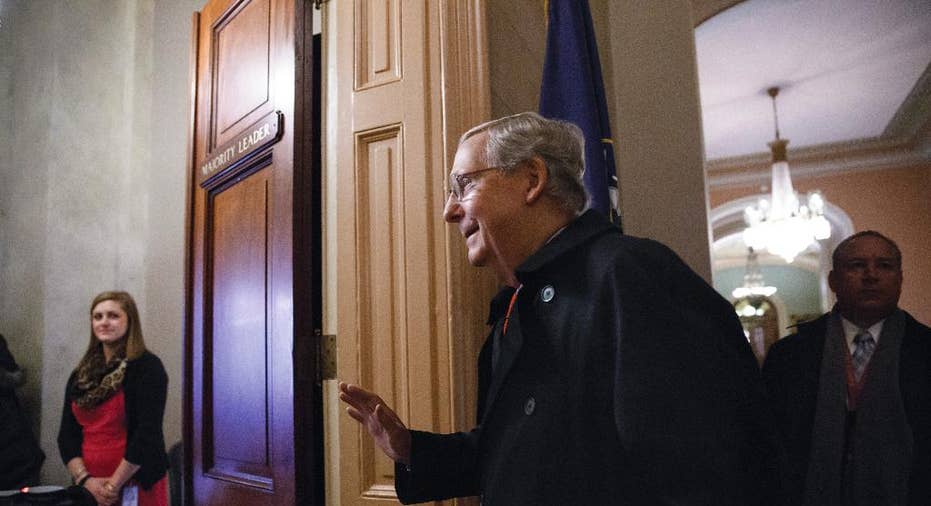Senate presses ahead with bill to build Keystone XL pipeline despite Obama veto threat

WASHINGTON – Senate Republicans steered legislation to approve the Keystone XL oil pipeline toward an initial test vote on Monday, intent on forcing a quick veto showdown with President Barack Obama over the long-stalled project.
The measure has sparked intense debate over the Canada-to-Texas pipeline's potential impact on employment and the environment, yet there was little or no doubt that it would overcome Monday's hurdle. Republicans said they hoped it could win final approval and be sent to the White House by the end of next week.
"President Obama has every reason to sign the jobs and infrastructure bill that we will pass," said Senate Majority Leader Mitch McConnell of Kentucky. He noted that the Nebraska Supreme Court had recently rejected a legal challenge brought by opponents, an obstacle the White House had cited.
Sen. Brian Schatz, D-Hawaii, made the case for the opposition. He said that if constructed, the pipeline would carry "some of the dirtiest, most dangerous and most polluting oil in the world." He called the project "anti-clear water, anti-clear air, anti-public health."
The proposed 1,179-mile pipeline would begin in Canada, enter the United States at Morgan, Montana, cut across South Dakota and connect with an existing pipeline in Steele City, Nebraska, that in turn reaches refineries along the Texas Gulf Coast. It would carry an estimated 800,000 barrels of crude oil a day.
The White House has repeatedly threatened a veto, and if Obama follows through, it will become the first of what are expected to be numerous clashes with the Republican majorities now in control of both houses of Congress.
The House passed pipeline legislation last week, as it often has in recent years. This time, for the first time since the project was proposed six years ago, the Senate is in Republican hands and the legislation commands enough bipartisan support to assure its approval — if not enough to override a veto.
By bringing the legislation to a vote one week after taking over the Senate majority, Republicans hope to achieve two goals at once.
Passing the measure is the first, and ushering in a new era of open Senate debate with the opportunity for lawmakers to seek votes on proposed changes is the second.
"It's the latest example of Congress getting back to work under a new Republican majority," said McConnell, in a jab at Democrats who have generally blocked votes on amendments over the past few years.
Democrats said they welcomed that, and some readied proposed changes that would try and put Republicans on record concerning climate change.
The pipeline project has unanimous support from Republicans in Congress, but it divides Democrats. Environmentalists generally oppose the legislation, while several unions support it for the jobs it would create.
In fact, there was significant debate over both the proposed project's impact on the environment and on the economy.
An environmental impact statement prepared by the State Department estimated that construction spending "would support a combined total of approximately 42,100 jobs throughout the United States for the up to 2-year construction period."
It added that not all the employment would be newly created, though. It said some of the jobs would be "continuity of existing jobs in current or new locations," a distinction often overlooked by the bill's supporters.
Once the proposed project opens, it will require "approximately 50 total employees in the United States: 35 permanent employees and 15 temporary contractors," the State Department estimated.
The project would have a bewildering range of possible impacts on the environment. They range from the effect on the Great Plains Aquifer under southern Nebraska to the fate of the American Burying Beetle, one of 14 species that could be affected that are proposed or currently receiving protection.
The review also said other options for extracting the oil and moving it toward refineries by rail or tanker ship would have a worse impact on climate change, in some cases far worse.



















